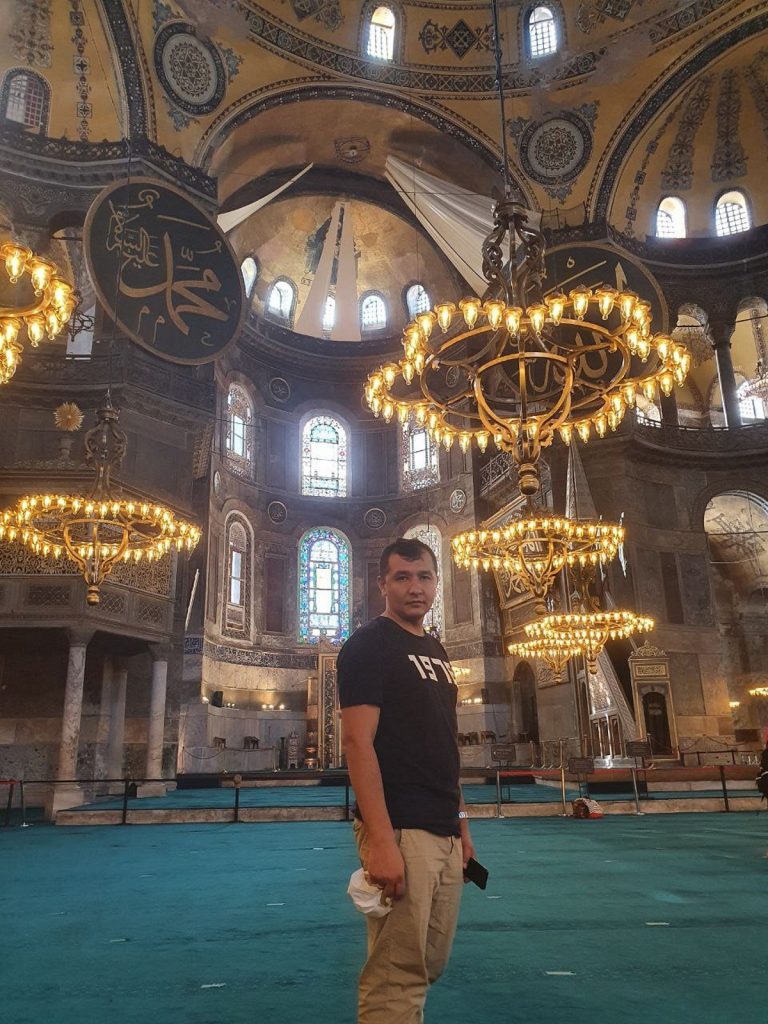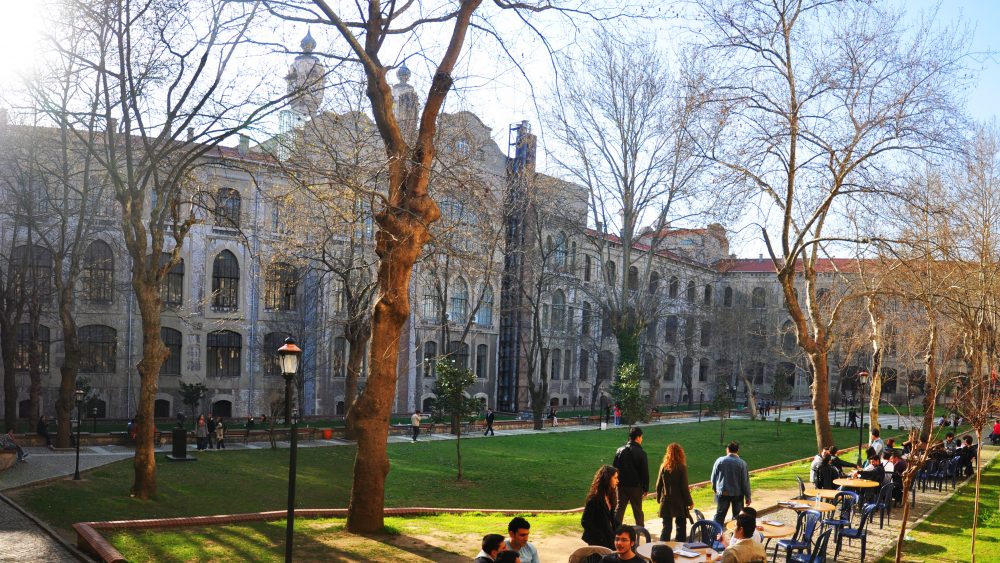By Khasan Sayfutdinov, Senior Lecturer in Law at Westminster International University in Tashkent.
I had an opportunity to do my secondment in Goztepe Campus of Marmara University. As a public university, Marmara University is the second oldest university of Turkey founded in 1883 after Istanbul University. On our first day in the university campus, we have been given the office room in the Faculty of Economics. The hospitality of the faculty was on a high level. The dean of school, Prof. Dr. Sadullah Çelik introduced us to the faculty members and provided all necessary documents for accessing the facility in the university territory. We have been given access to the university webmail and intranet. The members of the faculty were always ready for assistance from the first day of our secondment. Both academic and technical staff helped to get settled in the office.

About Research
My research topic is about legitimate expectations of investors in the host country. In the last ten years, the topic “Legitimate expectations” was widely discussed by prominent scholars of international investment and trade law. One of the first scholars interested in the origin and limits of legitimate expectation was the publication by Michele Potesta (2013). His research included most cases from investment arbitration, where the author criticizes the inconsistency in the interpretation of legitimate expectations as the component of FET standards. The paper also included the analysis of the national administrative law systems and the EU framework, intending to grasp the common features of protection of expectations under those systems. The recent publication by Wonkaew (2019) challenged the theory of legitimate expectations and suggested his approach, which is called reliance theory. Wonkaew suggests that promissory obligations lead to a different understanding of legitimate expectations. The proposed analytical framework is based on three conceptions. First, the promise as a willful act to undertake an obligation leads to a restrictive, state-centric view of legitimate expectations. The second category of promise is employed as an intention to create expectations that allow the non-binding, voluntary conduct of the state as the basis for an obligation. The third type of promise is conduct that induces reliance offers a flexible framework for balancing the investor’s conduct and the investor’s expectations. During my research stay in Istanbul, I have also researched the legal stability approach in the local legal system. The degree of changes in the local foreign direct investment law and regulations in property law were also researched.
The secondment provided me with an opportunity to formulate my analytical framework and questionnaire for conducting the interview with stakeholders in Uzbekistan. I have discussed my research questions with colleagues at Marmara University. During the secondment, my research also benefitted from data collection on legal stability in the local (Turkish) law and regulations in the field of property law. Legal expectations and legal stability are closely connected, and some local authors found interesting findings in the area.
Accommodation
I have found accommodation in the Bomonti neighbourhood in the Sisle district . Sisle is one of the largest districts in Istanbul. Even though it does not have access to the sea , the entire area is very modern with developed infrastructure. Bomonti neighbourhood also hosts expats who work in Istanbul where you can get feedback about their experience in the city. Sisli is one of the major districts of Istanbul on the European side of the city. Although not by the sea, it’s located at the exit from the Bosphorus Bridge that links Asia to Europe.
Getting around
Metrobus and Metro are the best option for getting around the city. I have used Metrobus for commuting. Every passenger should use Istanbul Card, which has linked with a Hayat Eve Sigar (HES) code for inner-city public transportation and inter-city bus travel.
Covid Measures
Turkey lifted intercity travel ban and restrictions on urban public transport and the country returned to regular working order in public institutions and organizations from July 1, 2021.
As a foreigner, I registered in the system and received an HES code before we started our journey to Istanbul. In the public areas, everybody followed the mask rule, and I felt safe during my stay

Weekends
On the weekends, I have visited the historic places in the Istanbul. The best time for walking around in the tourist areas was between 6 to 8 in the morning.
References:
- Potestà, Michele. “Legitimate expectations in investment treaty law: understanding the roots and the limits of a controversial concept.” Icsid Review 28.1 (2013): 88-122.
- Wongkaew, Teerawat. Protection of legitimate expectations in investment treaty arbitration. Cambridge University Press, 2019.

